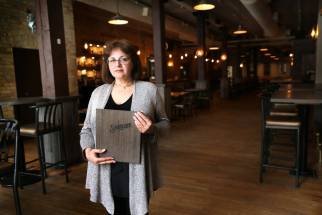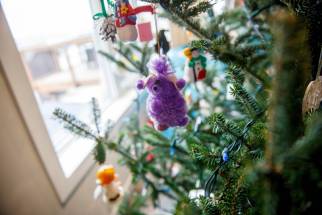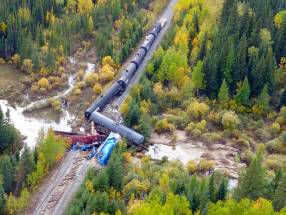So, what’s it gonna be… optimism or the abyss for the holidays?
Read this article for free:
or
Already have an account? Log in here »
To continue reading, please subscribe:
Monthly Digital Subscription
$0 for the first 4 weeks*
- Enjoy unlimited reading on winnipegfreepress.com
- Read the E-Edition, our digital replica newspaper
- Access News Break, our award-winning app
- Play interactive puzzles
*No charge for 4 weeks then price increases to the regular rate of $19.00 plus GST every four weeks. Offer available to new and qualified returning subscribers only. Cancel any time.
Monthly Digital Subscription
$4.75/week*
- Enjoy unlimited reading on winnipegfreepress.com
- Read the E-Edition, our digital replica newspaper
- Access News Break, our award-winning app
- Play interactive puzzles
*Billed as $19 plus GST every four weeks. Cancel any time.
To continue reading, please subscribe:
Add Free Press access to your Brandon Sun subscription for only an additional
$1 for the first 4 weeks*
*Your next subscription payment will increase by $1.00 and you will be charged $16.99 plus GST for four weeks. After four weeks, your payment will increase to $23.99 plus GST every four weeks.
Read unlimited articles for free today:
or
Already have an account? Log in here »
Hey there, time traveller!
This article was published 20/12/2021 (1449 days ago), so information in it may no longer be current.
Just days before we formally begin the holiday season, a new and dangerous variant of COVID-19 is raging across the globe and threatening — once again — to quash our plans to gather with friends and family. Is there any reason for optimism?
Let’s look at the pandemic glass in both its half-empty and half-full states.
On the half-empty side, we have Omicron.
After scientists spent months warning the world about the possibility of a vaccine-resistant variant of the virus that causes COVID-19, Omicron has become the exponentially more contagious manifestation of all those cautions.
Moderna and Pfizer are reportedly effective at combatting this variant and preventing serious symptoms. However, other vaccines that do not originate from mRNA technology — vaccines widely distributed in poorer nations around the world — are thought to be ineffective.
The other big concern is Omicron’s timing: it has arrived at a moment when huge tracts of the vaccinated world are at or beyond the six-month mark since their second doses, a point at which the effectiveness of most vaccines begins to wane.This concern is driving the booster-shot campaign.
After scientists spent months warning the world about the possibility of a vaccine-resistant variant of the virus that causes COVID-19, Omicron has become the exponentially more contagious manifestation of all those cautions.
All that leads us to the half-full analysis.
We can finally say with confidence that “this is not our first (pandemic) rodeo.” All of us know intimately what we need to do to protect ourselves and our loved ones as we face another wave of COVID-19. Although it will be painful, many of us will voluntarily wear our masks, avoid large household gatherings and indoor public events, and book our boosters.
That’s a very good thing, particularly in Manitoba, where the Tory government is demonstrating, once again, its blind devotion to the “least-restrictive means” pandemic strategy that sowed the seeds of two prior deadly waves.
And, while we may need boosters, here in Canada we can get them if we want them.
So, are we living in a glass half-empty or half-full?
As fellow columnist Jen Zoratti noted in our weekly editorial board meeting Monday, even though we are facing a new pandemic threat, this time we have more tools to fight the virus and better insight into how we can stay safe. Or, as she put it, “booking boosters now is a lot more buoying than staring into the abyss of last year.”
So, are we living in a glass half-empty or half-full?
It’s an excellent point, particularly when you consider the origin of the phrase “gazing into the abyss.”
The phrase was coined by German philosopher Friedrich Nietzsche: “Whoever fights monsters should look to it that in the process he does not become a monster. And if you gaze long enough into an abyss, the abyss will gaze back at you.”
Decoding Nietzsche is a task better left to scholars, but the consensus seems to be he is making two main points: first, that people who confront evil are, at times, susceptible to becoming evil; and second, if you spend too much time focused on the endless abyss, then you may come to see the abyss as the rule and not the exception.
We’ve fought COVID-19 for so long, we’re at risk of accepting the abyss is all that awaits us. That pessimism can, under the right circumstances, limit our willingness to do the right things, respect ongoing efforts to keep us safe or resist the temptation to undertake risky behaviours.
In short, there is a chance that some of us have gazed so long into the pandemic abyss, we may lose our will to fight COVID-19.
You can see hints of this in some of the moaning and whining that’s going on about the prospect of another holiday season with social and economic restrictions.
While much of the fatigue can be traced back to the obstinate ranks of the unvaccinated, some is being emitted by the fully vaccinated who believe they are entitled to a free-range holiday, Omicron be damned.
We’re all fed up with limits on what we can do and who we can see. While much of the fatigue can be traced back to the obstinate ranks of the unvaccinated, some is being emitted by the fully vaccinated who believe they are entitled to a free-range holiday, Omicron be damned.
These folks are ignoring the fact Omicron is a threat to the fully vaccinated, particularly those who are six months or more past the date of their second shots. They are similarly ignoring the fact that even before Omicron makes its presence felt here in Manitoba, our hospitals are brimming with COVID-19 patients made sick by previous iterations of the virus, and that this new variant carries with it the likelihood of many, many more admissions for treatment.
The health-care system is so overwhelmed, it is already being prevented from offering life-saving treatment to those with chronic illnesses, while those who work on the front lines are being pushed past the point of breaking. Even the most resilient among us need some time to recharge their batteries; COVID-19 does not afford that opportunity.
Which brings us back to our original question: is there reason for optimism?
We are, empirically speaking, much better off than we were in previous waves. Most of us have accepted masks and vaccines as the table stakes for personal freedoms. And we understand that we’ll have to continue making sacrifices for the foreseeable future.
By now, we should know that these sacrifices, while inconvenient and disconcerting, are not the abyss.
The abyss awaits us only if we cannot continue to sacrifice.
dan.lett@winnipegfreepress.com

Born and raised in and around Toronto, Dan Lett came to Winnipeg in 1986, less than a year out of journalism school with a lifelong dream to be a newspaper reporter.
Our newsroom depends on a growing audience of readers to power our journalism. If you are not a paid reader, please consider becoming a subscriber.
Our newsroom depends on its audience of readers to power our journalism. Thank you for your support.







